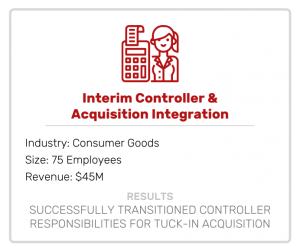
If you’re reading this, chances are you already know 1) how to use social media and 2) how useful it is for growing your professional brand. What you may also know is that social media can be a difficult field for finance and accounting professionals due to the large amount of regulation and oversight within the industry. In fact, up to 91% of financial firms cite unclear guidelines from FINRA and/or the SEC on how to properly use social media as a major barrier to entry.
Those difficulties should never stop you from leveraging the power of social media to extend your professional network, connect with clients and industry influencers, and become a powerful voice within your field. You should be building your own social media presence in the following ways:
Social media, when done right, should not require a large budget. When creating your own platform, you are the expert. You have your own, personalized content swimming around in your head from your own unique experiences and expertise. Take the time to strategize, giving careful thought to your target audience and the value of what you’re posting. Your posts should be detailed enough to provide value to your readers, but not so detailed that they don’t need your company’s expert services!
Finally, avoid too much self-promotion. Think of your own experiences on social media networks. If you can spot self-promotion a mile away, so can your readers. Keep your content rich in value, and watch your community take shape.
The acronym above stands for Keep It Simple, Stupid. Consider the place social media occupies in your life, or the life of other busy professionals: generally, it’s something you skim on your phone in thirty-second intervals while you’re waiting for something else to occur. You don’t have time to read everything on your LinkedIn feed, so you scan recent posts until an attractive photo or flashy headline catches your eye. You grant this post a second glance, and decide within 7 seconds whether or not it is worth your time.
When posting, take pity on your readers. They’re just as busy as you are, and are likely just as cursory in their social media skimming. You need to catch their attention quickly, and often must condense your message to ~7 seconds in order to keep it. So, keep your posts clean, simple, and to the point (generally about 3-4 lines). Include pictures whenever possible. Balance these punchier posts with value-rich long-form posts (Facebook and LinkedIn both allow for these types of posts directly on their platform, though a blogging is an even better alternative).
The entire point of social media is to connect like-minded individuals in spite of limitations imposed by space and time. So, find the author you admire on Twitter and follow them. Connect with a former colleague on LinkedIn. Like on of their posts, or retweet some of their content (making sure to tag or “@” them), and/or respond to something they’ve said. You’ll be surprised at how often this leads to a follow request and future conversations.
Furthermore, use these platforms to connect with your customers. If you see a past or present customer struggling with a concept you have experience with, engage them. Ask questions, comment, send direct messages, and respond to complaints or concerns. If they’re pleased with what you’ve done, they may just give you a shoutout.
Instagram is pretty, Facebook is full of gossip, and Twitter is flashy, but they’re all about as substantive as a high school clique when it comes to your professional goals. To extend the metaphor further, LinkedIn is the nerdy kid who grew into a business mogul after graduation. You never thought much of them when you were young, but they are extremely interesting now.
LinkedIn is extremely focused. Those who use it know to keep their vacation photos off and their professional face on when posting, so your newsfeed is much more likely to be full of compelling, professional content. And this goes both ways, as those who use LinkedIn do so specifically for that professional content. Your own professional posts are much more likely to find the correct audience, and generate the desired engagement, than they are on any other site.
There are many ways to track the success of your social media endeavors. This will allow you to measure the success of your endeavors, and to adapt if you’re not reaching your goals.
At the end of the day, social media is what you make of it. And, in social profiles as in life, it is always best to be yourself. Constantly check in with your professional goals to determine how social media could best serve you in your career, and be honest with yourself about how much time and energy you have to devote to your profile(s). While we recommend about 1-6 hours per week, your own needs and goals may require a different time commitment.